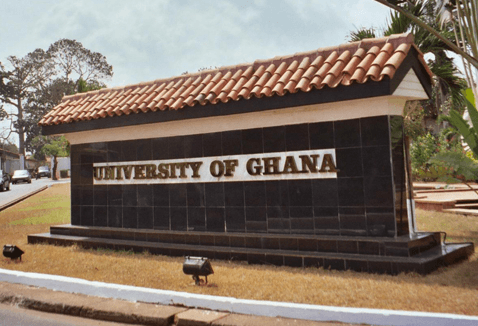
…Because the continent pays interest on poor governance decisions long after the decision makers leave office
Across Africa, many still imagine that governance belongs to a privileged circle that meets in air-conditioned rooms and speaks a private language. The diplomatic but inconvenient truth is that governance is not ceremonial grammar for lawyers and directors. Governance is society’s operating system.
It determines the price of cooking oil, the reliability of electricity in a rural clinic, the quality of textbooks in a public school, and the credibility of a national currency. When governance breaks, ordinary people pay. They pay with time lost in hospital queues, with potholes that damage vehicles, with budgets that do not stretch to the end of the month, and with aspirations postponed because institutions failed to deliver what they promised.
How private oversight failures become public household pain
A persistent illusion seduces citizens into thinking they are distant from governance because they do not attend board meetings. That illusion is costly. The majority of governance decisions taken behind closed doors create the public outcomes that families live with for years. A procurement shortcut in a ministry becomes a higher tax rate. A badly structured power purchase agreement becomes an expensive tariff for a market trader chilling fish.
A delayed forensic audit turns into a higher interest rate on sovereign borrowing. When oversight is weak, inflation is first assembled in spreadsheets, then revealed on price tags. A shopper in Accra paying more for rice, or a driver in Kampala spending most of his daily earnings on fuel, is not only paying for global price swings. They are paying for governance weak points in logistics, customs, and contract management. Private neglect becomes public hardship.
Damage does not begin in boardrooms. It begins in routine operations
Boardrooms are rarely the birthplace of national damage. They are the place where damage eventually appears, dressed in reports and excuses. The real battlefield is routine operations long before any paper reaches a director’s desk.
The officer who drafts a narrow specification already tilts the competition. The engineer who signs an inaccurate measurement sheet on a road project is shaping national debt before a minister reviews anything. The storekeeper who releases stock without reconciling the ledger is quietly draining value from the state.
Studies from global consultancies and public finance bodies repeatedly show that most value erosion occurs in the middle of organisations, between the accountant, the planner, the compliance officer, the fleet supervisor, and the site engineer.
That is why governance literacy must not be a boardroom novelty. It must be mainstream knowledge for every public and private employee who touches budgets, inventories, performance data, contracts, and verification records.
Small deviations become big national liabilities
Nigeria’s fuel subsidy distortions did not begin with a televised signature. They began in a weak verification culture, with uncalibrated meters, inconsistent documentation, and a tolerance for small exceptions that compounded. By the time the subject reached national debate, the citizen was already paying.
In Ghana, the Auditor General’s reports document patterns of unsupported payments, ghost cleaning contracts, uncollected revenue, and non-competitive awards. These leaks start at desks far below the level of a board agenda. In Kenya, multi-billion-dollar infrastructure overruns began when field measurements were copied forward as fact and approved without scrutiny. The first leak is always in a small bucket. The ocean notices too late.
Nations rise when governance becomes cultural, not ceremonial
Societies that sustain performance do not begin by importing capital. They begin by institutionalising disciplined behaviour. Japan did not become a manufacturing giant because of its abundance of natural resources.
It became formidable because quality, compliance, and continuous improvement became everyday habits on the factory floor. Singapore did not achieve scale in financial services because of its “large” population. It built predictable systems that punished deviation and rewarded consistency.
Scandinavia’s social contracts do not hold because citizens are perfect, but because they understand the rules governing contributions, procurement, and public investment. Governance in these places is not an elite seminar. It is public language. The lesson is clear. For African nations, laws alone are insufficient. Governance must become cultural. Citizens must expect it and practise it.
The true cost of weak governance is hidden in everyday prices
A citizen might not enjoy reading audit committee charters but that same citizen will notice the monthly electricity bill. A citizen may not debate IFRS notes, but that same citizen will feel the transport fare increase.
A citizen may not track budget variance tables, but that same citizen will worry when a hospital cannot procure medicine after mid-year because allocations were mismanaged. International data shows that weak oversight can drain a significant share of project value. Those losses do not vanish. They return as higher tariffs, weaker currency, fewer scholarships, slower job creation, and underfunded social services. Bad governance is a tax that nobody voted for and everybody pays.
National progress is built on small daily integrity, not grand speeches
Africa’s governance renewal will not be delivered by slogans or a new layer of committees. It will be built by disciplined behaviour embedded in daily routines. The data entry officer who insists on accuracy is practising governance. The procurement assistant who verifies supplier quotations is practising governance.
The budget officer who refuses to sign what cannot be evidenced is practising governance. The clinic nurse who checks stock sheets before placing an order is practising governance. The driver who records mileage honestly is practising governance. Governance is not only the glass office. Governance is the hand that records the numbers and the mind that refuses to bend them.
When citizens understand governance, leaders become accountable
Countries that remain globally competitive invested early in governance literacy. Citizens there read beyond headlines. They read budget summaries. They ask constituency-level procurement questions. They discuss central bank policy. Public literacy became a national asset that protects the common purse.
Africa should not wait for leaders to teach governance. Citizens must demand it from anyone who exercises it on their behalf. Pension contributors should know how funds are invested. University students should learn how contract structures shape job markets. Traders should understand how procurement waste fuels inflation. The diaspora should recognise how inconsistent enforcement erodes currency stability. When citizens understand governance, leaders know they will be questioned and standards rise.
Africa’s renewal depends on governance ownership at every level
This argument is not written to embarrass the continent. It is written to empower it. Africa is entering a demographic moment in which millions of young people will not accept fragile institutions, volatile currencies, and predictable crisis. The future will not reward governance exclusivity. It will reward broad governance ownership.
The continent’s greatest resource is not what lies underground. It is who sits in classrooms, workshops, wards, farms, studios, laboratories, and offices. When that human capital becomes governance literate, investors will not need convincing. Predictability will speak for itself. Confidence will become a habit. Progress will become less episodic and more routine.
The journey will be demanding. It requires consistent enforcement, not theatricality. It requires directors who privilege truth over optics, civil servants who follow the rules when no one is watching, auditors who close findings with consequences, and citizens who learn to read the signals that something is going wrong. It also requires humility to learn from places that have done better and courage to correct what has been normalised. Governance is not a political season. It is the oxygen of national competitiveness.
Future generations will not judge us by the number of speeches we delivered or the number of committees we formed. They will judge us by the quality of governance we normalised. The future African child deserves more than inspirational slogans. They deserve systems that protect public money, enforce truth, and punish silent sabotage. Governance is not an intellectual accessory. It is a moral contract between today’s decision makers and tomorrow’s taxpayers. The moment citizens understand this contract deeply, governance will no longer be a mystery. It will become a collective discipline. And that is how nations secure the dignity of their unborn.
>>>the writer is a globally celebrated thought leader, Chartered Director, industrial engineer, supply chain management expert, and social entrepreneur known for his transformative contributions to industrialisation, procurement, and strategic sourcing in developing nations.
As Africa’s first Professor Extraordinaire for Supply Chain Governance and Industrialization, he has advised governments, businesses, and policymakers, driving sustainability and growth. During his tenure as Chairman of the Minerals Income Investment Fund (MIIF) and Labadi Beach Hotel, he led these institutions to global recognition for innovation and operational excellence. He is also the past chairman of the Public Procurement Authority.
A prolific author of over 90 publications, he is the creator of NyansaKasa (Words of Wisdom), a thought-provoking platform with over one million daily readers. Through his visionary leadership, Professor Boateng continues to inspire ethical governance, innovation, and youth empowerment, driving Africa toward a sustainable and inclusive future.
The post The Inconvenient Truth with Professor Douglas BOATENG: When governance fails, the price is mainly paid by those who never signed the documents appeared first on The Business & Financial Times.
Read Full Story

















Facebook
Twitter
Pinterest
Instagram
Google+
YouTube
LinkedIn
RSS